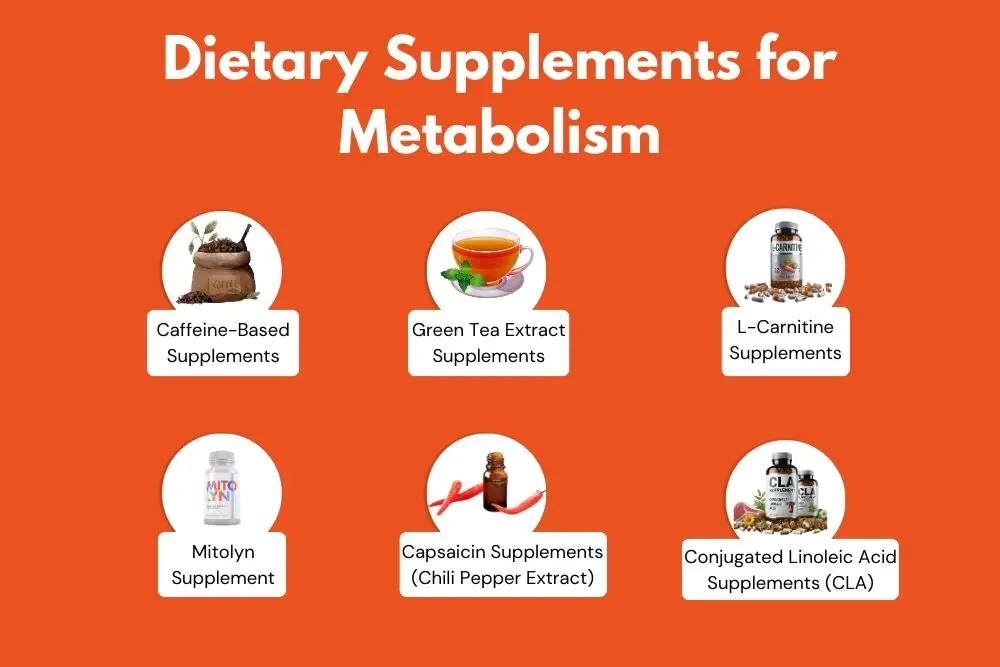Metabolism is an important physical function that determines how efficiently we convert food into energy. It has a significant role in weight management, energy levels and overall well-being. Many people looking to boost their metabolism, especially those trying to lose weight or increase their energy levels. This has led to a growing interest in dietary supplements that improve metabolic rates. But do these supplements actually work? Let’s study the science behind metabolism-boosting supplements and their effectiveness.
Understanding Metabolism
Metabolism refers to the complex biochemical processes that convert calories from food and drink into energy. It consists of two primary components:
- Basal Metabolic Rate (BMR): The amount of energy the body requires at rest to maintain essential functions such as breathing, circulation and cell repair.
- Thermogenesis: The process by which the body burns calories to produce heat, including digestion-induced thermogenesis (calories burned while processing food).
Several factors influence metabolism, including age, genetics, muscle mass and activity levels. While some individuals have naturally faster metabolisms, others may struggle with slow metabolic rates, leading them to seek external support such as weight loss supplements.
Popular Dietary Supplements for Metabolism
Many dietary supplements claim to improve metabolism and aid in weight management. Some of the most popular ingredients include caffeine, green tea extract, L-carnitine and thermogenic compounds. Let’s examine some of the best supplements for metabolism boosting.

1. Caffeine-Based Supplements
Caffeine is one of the most widely used metabolism-boosting substances. It stimulates the central nervous system, increasing heart rate and thermogenesis, which leads to increased calorie burning. Studies suggest that caffeine can boost metabolic rate by 3–11%, depending on the dose and individual response. However, excessive caffeine consumption can cause side effects such as jitters, increased heart rate and sleeplessness.
2. Green Tea Extract Supplements
Green tea extract contains antioxidants known as catechins, particularly epigallocatechin gallate (EGCG), which has been linked to increased fat oxidation. Studies have shown that green tea extract, particularly when combined with caffeine, can improve metabolism and promote fat burning. However, its effectiveness varies among individuals and results are often modest.
3. L-Carnitine Supplements
L-carnitine is an amino acid that transports fatty acids into the mitochondria, where they are converted into energy. Some studies suggest that L-carnitine supplementation may improve fat metabolism and improve energy levels. However, its effectiveness in boosting metabolism for weight loss remains inconclusive, with mixed study results.
4. Mitolyn Supplement
Mitolyn Supplement is a relatively new entrant in the metabolism-boosting supplement market. It is designed to enrich mitochondrial function, the powerhouse of the cells responsible for energy production. By supporting optimal mitochondrial activity, Mitolyn Supplement may help improve energy levels and metabolic efficiency. While scientific research on this specific supplement is limited, improving mitochondrial health is a well-recognised approach to supporting metabolic function.
5. Capsaicin Supplements (Chili Pepper Extract)
Capsaicin, the compound responsible for the spiciness in chili peppers, has been shown to increase thermogenesis and fat oxidation. It can slightly boost metabolic rate and suppress appetite, making it a popular ingredient in weight management supplements. However, its effects are generally modest and long-term benefits require further research.
6. Conjugated Linoleic Acid Supplements (CLA)
CLA is a fatty acid found in meat and dairy products and it has been marketed as a fat-burning supplement. Some studies indicate that CLA may help reduce body fat while preserving lean muscle mass, but results are inconsistent and more research is needed to confirm its effectiveness.
Do Metabolism Supplements Actually Work?
While many metabolism-boosting supplements contain ingredients supported by scientific research, their effects tend to be modest at best. No supplement can replace a healthy diet, regular exercise and sufficient sleep, which are the most effective ways to maintain an optimal metabolism.
Factors to consider before taking metabolism supplements:
- Individual Variability: Responses to supplements vary based on genetics, diet and lifestyle.
- Potential Side Effects: Some supplements can cause adverse effects, including heart palpitations, digestive issues or sleep disturbances.
- Lack of Long-Term Research: Many supplements lack extensive long-term studies confirming their safety and effectiveness.
- Regulation and Quality: Unlike prescription medications, dietary supplements are not strictly regulated, making it essential to choose high-quality, reputable brands.
Natural Ways to Boost Metabolism
Rather than depending only on supplements, consider these natural methods to support metabolic function:

- Increase Protein Intake: Protein-rich foods require more energy to digest, boosting thermogenesis.
- Stay Hydrated: Drinking enough water helps maintain metabolic processes.
- Engage in Strength Training: Building muscle mass increases BMR.
- Get Enough Sleep: Poor sleep can disrupt metabolic hormones and slow down metabolism.
- Practice High-Intensity Interval Training (HIIT): Short bursts of intense exercise can boost metabolism for hours.
While dietary supplements like Mitolyn Supplement, caffeine and capsaicin may provide a slight metabolic boost, they should not be relied upon as a primary solution for weight management. A balanced diet, regular exercise and healthy lifestyle habits remain the most effective ways to maintain a strong metabolism. If considering metabolism-boosting supplements, consult a healthcare professional to ensure they are safe and suitable for your individual needs.

